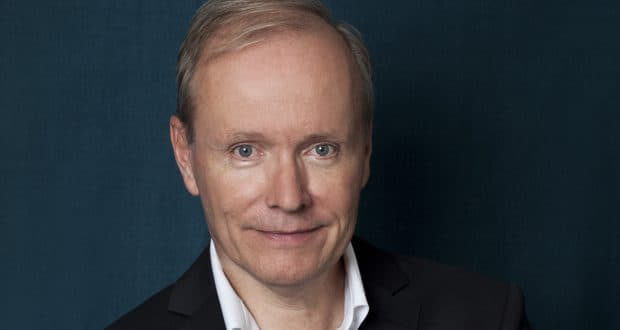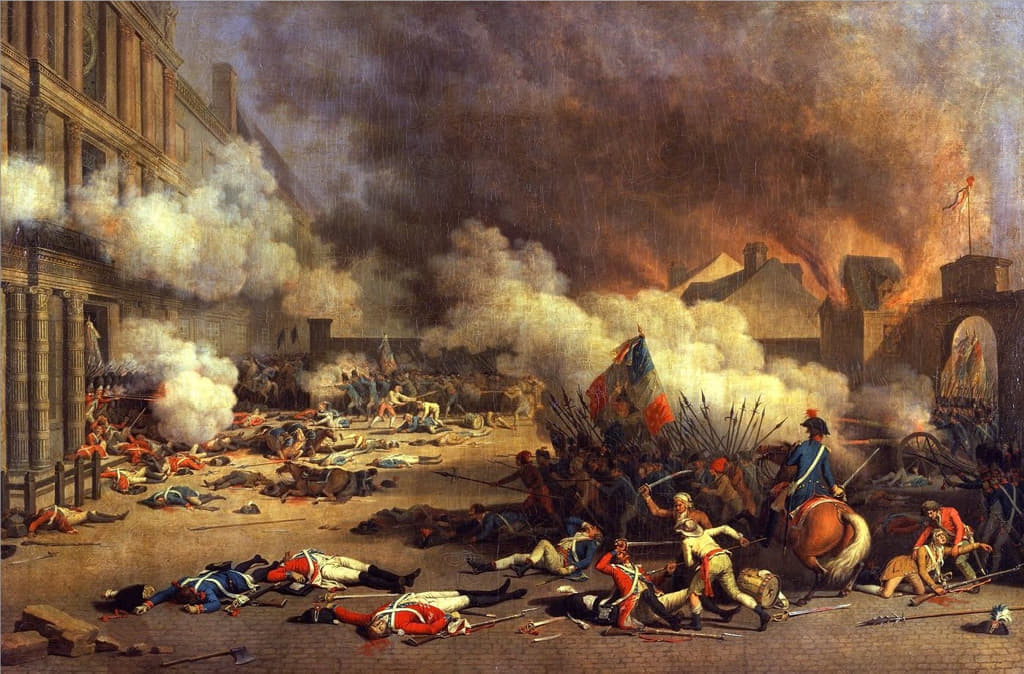Patrice Gueniffey is a French historican whose field is Napoleonic studies and the French Revolution. He has published several important books, including, Bonaparte: 1769–1802. He sits down with Christophe et Élisabeth Geffroy of La Nef magazine to discuss the connection between the Enlightenment and the French Revolution, in that the latter carried out a “hold-up” on the Enlightenment. This interview comes through the kind courtesy of La Nef.

Christophe et Élisabeth Geffroy (C&E): What are the main ideas of the Enlightenment?
Patrice Gueniffey (PG): To enumerate them would be to draw up a sort of Prévert inventory, for the activities of the Enlightenment extended to all areas of moral, political and social life. From tolerance to freedom of expression, from the question of education to that of inequality, from the problem of property to political forms, from religious questions to the reform of the penal system and the abolition of slavery, nothing escaped them.
C&E: In what way is the Enlightenment not a homogeneous movement, and what ultimately unites it?
PG: The range of issues addressed is so broad that there is no doctrinal homogeneity that would allow us to consider the Enlightenment as a kind of intellectual party with a doctrine. Voltaire, Montesquieu, Diderot, Rousseau and, last but not least, Condorcet, are not different names for the same thinker. Their divergences, and often their oppositions, in every field, testify to the infinite diversity of what we have come to call the “Enlightenment.”

However, they do have one thing in common, which Kant defined very precisely in What is Enlightenment? (1784): “the public use of reason in all things.” This was a revolutionary formulation, since from then on, the most established authorities and venerable institutions would be open to free scrutiny, questioning their foundations and legitimacy. The Enlightenment separated truth and authority.
They invented nothing. They were a continuation of the scientific revolution which, from the end of the 15th century, developing in the 16th and triumphing in the 17th, overthrew medieval science, which found in Revelation the means to understand and explain natural phenomena. At least since Galileo, rational observation replaced the “lights” of Christian science. What astronomers, physicists, chemists and botanists had achieved since the early modern era in the study of the physical universe or the animal kingdom, philosophers were to extend to the realm of social and moral life. “Social science” was born, even if it was not until decades later that Abbé Sieyès gave it this name, thus marking its dependence on the natural sciences, adopting the latter’s methods, based on observation and then the reduction of reality to the laws that affect it, and adding to them the idea that, having discovered the laws that “affect” man in society, it would be possible to reorganize the world on fairer foundations.
Of course, not all the philosophers associated with the Enlightenment followed this path in its entirety. Montesquieu could not be considered an advocate of the “complete regeneration” of society, and while Rousseau thought about it, he stopped short of the consequences of such an undertaking. It would take Condorcet to envisage the complete regeneration of what existed, but Condorcet belonged to the French Revolution. The last representative of the Enlightenment was not the most representative of a movement that placed its hopes more often in enlightened despotism and English-style parliamentary monarchy than in democracy or republicanism.
C&E: What influence did the Enlightenment have on the Revolution? Is the Revolution the daughter of the Enlightenment?
PG: The philosophical legacy of the Enlightenment is certainly to be found in the Revolution—it inspired the establishment of representative government; it was directly behind the reform of judicial procedure; it led to the abolition of slavery and the emancipation of the Jews, and inspired all those concerned with widening access to education. This legacy is also to be found in the French Civil Code, the drafting of which began in 1793 and was completed in 1804.
Where the influence of the Enlightenment is most marked is in the policy of reforming society and the State, to which the Revolution gave a powerful impetus between two political upheavals, but which it did not inaugurate. For the monarchy, at least since the reign of Louis XV, is no stranger to the spirit of reform. There was no shortage of ministers imbued with Enlightenment ideas in the royal entourage, and if reforms did not always come to fruition, it was because the weakness of power prevented them, just as the repeated upheavals of the revolutionary period paralyzed many projects. On the eve of 1789, many reforms had been initiated or planned.
The Revolution carried out a sort of “hold-up” on the Enlightenment. It confiscated it even though its last surviving representatives were reluctant to see the continuation of a political enterprise whose violence had always been very alien to them: Abbé Raynal condemned the Revolution as early as 1791; Fontanes preferred to join the counter-revolutionary camp; and Condorcet, after Chamfort, committed suicide when he realized that the Revolution, whose advent he had hailed, had finally turned against the ideals of the Enlightenment.
In 1789, legitimacy remained on the side of the Ancien Régime. No doubt its religious justification had become a fragile title, but the established order remained strong in its roots in time—history and tradition were on its side. The revolutionaries could not oppose another history to the one to which the thousand-year-old monarchy was boundd. They opposed history with philosophy, and tradition with principles that were independent of all circumstances and superior to all traditions. Human rights—identified with the legacy of the Enlightenment—against the tradition to which the Ancien Regime claimed to belong. The battle was unequal, but not in the way the defenders of the established order thought. The cooking pot was not what it seemed, and the Ancien Régime collapsed.
At the same time, the face of the Enlightenment changed. It became a kind of preface to the Revolution, and was reduced to the most radical, and specifically French, currents that had existed within it. For there is a French singularity in this respect. Nowhere else was the Enlightenment—a European phenomenon before it was a national one—so violently anti-religious as in France. At least, nowhere else than in France were so many philosophers, in Voltaire’s wake, so hostile to the Church and even to Christianity as such. Neither in Germany, nor in Italy, nor, a fortiori, in England, did they believe that to put an end to injustice it was necessary to wipe the slate clean, destroy institutions, customs and usages, and even give birth to a new man—in short, to start history all over again from a blank page. This ambition belongs less to the Enlightenment than to French history. Should we blame Gallicanism, which, by making the Church subservient to the State, ended up compromising religion? Should we blame absolutism, which, by reserving a monopoly on public debate, allowed writers and philosophers to discuss everything without ever having to worry about the consequences of their theories, let alone their practicability? No doubt.
C&E: Did the Revolution betray the Enlightenment by following its course towards the Terror, or was this aspect of the Revolution itself inscribed in the “genes” of the Enlightenment?
PG: The Terror: Rousseau’s fault or the fault of circumstances? The debate is long-standing and never-ending. There is no doubt that the philosophical “artificialism” of the Enlightenment contributed to imagining society, and its population, as a field of experimentation
In the political discourse, or rather in the political speculations, of the eighteenth century, there was an absence of any sense of reality that would prove very dangerous once we moved from theory to practice.
That said, we cannot deny the role played by circumstances, by the sudden and brutal collapse of any authority capable of imposing compromise or even repression; nor the role, too often overlooked, of passions that had nothing to do with philosophy; nor, finally, that of the legacy of absolutism which, beyond the great break of 1789, was to be found in post-revolutionary France—the cult of unity, even unanimity, the assimilation of opposition and dissent, the centrality of the State and the religion of administration, the rejection of all local autonomy and all independence of society from those who govern it—in short, old French tropisms, which became more pronounced after the Wars of Religion. This is not a legacy of the Enlightenment. In many respects, the Enlightenment was the very antithesis of it.
Featured: Taking of the Tuileries, Court of the Carrousel, 10th August 1792, by Jean Duplessis-Bertaux; painted in 1793.
